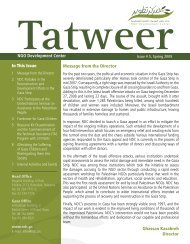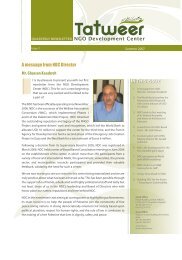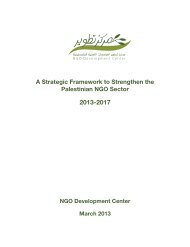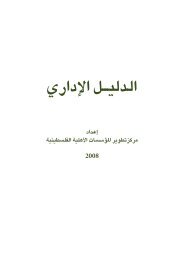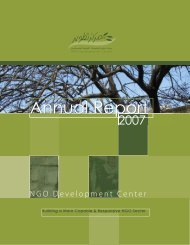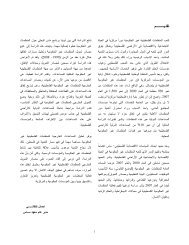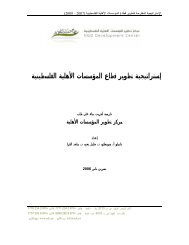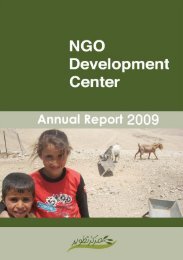Tracking External Donor Funding.pdf - NDC
Tracking External Donor Funding.pdf - NDC
Tracking External Donor Funding.pdf - NDC
You also want an ePaper? Increase the reach of your titles
YUMPU automatically turns print PDFs into web optimized ePapers that Google loves.
Table 9: Sector Working Groups and Subgroups<br />
Sector Working Groups<br />
Agriculture<br />
Fiscal<br />
Private Sector Development<br />
Water and Sanitation<br />
Municipal Development and<br />
Local Governance<br />
Health<br />
Education<br />
Social Protection<br />
Judiciary<br />
Public Administration<br />
Civil Service<br />
Security<br />
Elections<br />
Energy and Electricity<br />
Environment<br />
Thematic Groups and Taskforces<br />
Fiscal Taskforce<br />
Micro Finance Taskforce<br />
National Nutrition Steering Committee, Pharmaceutical<br />
TG, Mental Health TG, Non-Communicable Diseases<br />
TG, Women's Health TG, Children's Health TG<br />
Higher Education TG<br />
2.3.3 The Critique of the Aid Coordination<br />
Structure<br />
Though the sheer amount of aid entering the WB&GS<br />
requires a system of external aid coordination, questions<br />
still remain about the effectiveness of this structure in<br />
responding to Palestinian needs and priorities, and the<br />
ability of Palestinian Ministries to put forward a<br />
competent agenda to guide donors, as opposed to follow<br />
them.<br />
The blame for this cannot be entirely placed upon the<br />
door of international donors though. While the donors<br />
have changed the system to align with the principles of<br />
aid effectiveness outlined in the Paris Declaration, the<br />
ongoing occupation and political instability in the PA<br />
have ensured that decision making power still rests in the<br />
hands of donors at the capital level. Even with the<br />
structural changes, and even with a competent stable PA,<br />
the same client-recipient relationship would remain<br />
(Khan, 2003). After all, it is the donor who gives the<br />
money, or not, as the case may be. The response to the<br />
election victory of Hamas in 2006 is only too clear an<br />
example of donor’s political agendas overriding their<br />
development strategies.<br />
There is another important criticism of the system of aid<br />
coordination: it largely fails to include Palestinian<br />
NGOs 26 . Though critical to development, these<br />
organizations have little say in the overall direction of<br />
aid at the strategic levels. While International NGOs are<br />
represented through AIDA, the Palestinian NGO<br />
Network (PINGO) has continually asked the AHLC for<br />
more representation and access to technical<br />
information 27 .<br />
26<br />
27<br />
A few PNGOs, such as MAS, are given ‘observer’ status within<br />
SWGs. However the numbers are low and the placement is not<br />
fixed. The ability to do little more than observe has meant that<br />
attendance is low for the small number of PNGOs invited to the<br />
table.<br />
For an expanded and critical account of the Aid coordination<br />
system, see: Brynen, 2000: chapter 4, Le More, 2004 and Khan et<br />
al., 2004.<br />
20


